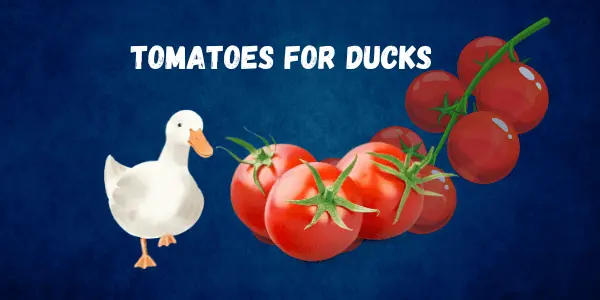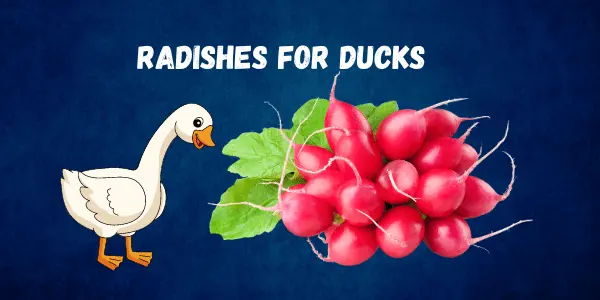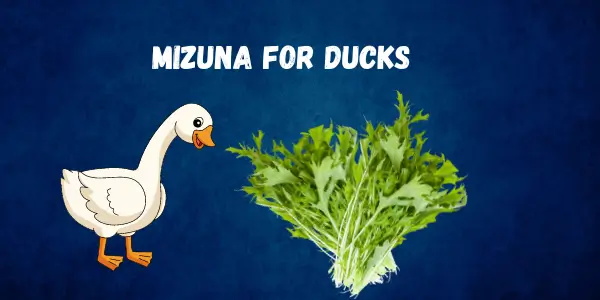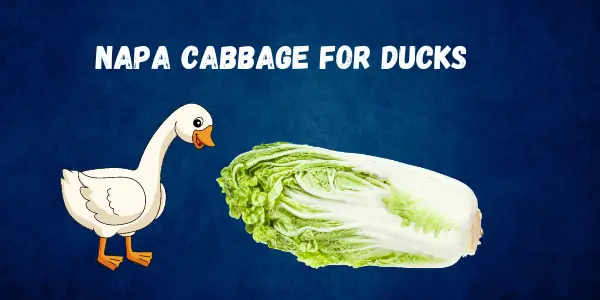Can Ducks Eat Celery? Everything You Need to Know
Published: 16 Sep 2024
Ducks can eat celery, but it should be given in moderation. Celery is a low-calorie vegetable with high water content, making it a hydrating snack. However, its fibrous texture can be difficult for ducks to digest if not prepared properly. Chopping celery into small pieces reduces the risk of digestive issues.
While celery is safe for ducks, it should not replace their primary diet. A balanced diet for ducks includes grains, leafy greens, and protein sources like small fish or insects.
Is Celery Safe for Ducks?
Celery is generally safe for ducks when given in small, manageable pieces. It contains essential vitamins and minerals, but its tough fibers can be challenging for ducks to break down. Feeding too much celery may cause digestive discomfort.

To ensure safety, always wash celery thoroughly to remove pesticides. Avoid giving ducks celery that has additives or seasonings.
Nutritional Benefits of Celery for Ducks Celery provides some nutritional value, though it should only be a supplemental treat.
Vitamins and Minerals in Celery
Celery contains vitamins A, C, and K, which support overall health. It also provides minerals like potassium and calcium, essential for bone strength and electrolyte balance. While these nutrients are beneficial, celery alone does not meet all of a duck’s dietary needs.
High Water Content and Hydration
Celery is about 95% water, making it a hydrating food for ducks, especially in warm weather. Ducks rely on proper hydration for digestion, feather health, and egg production.
Fiber and Digestive Health Celery has dietary fiber, which can aid digestion when given in moderation. However, excessive fiber intake may lead to blockages or discomfort. Cutting celery into small pieces helps reduce the risk of digestive issues.
Can Ducks Eat Celery Leaves and Stalks?
Ducks can eat both celery leaves and stalks, but each part has different considerations.
Are Celery Leaves Good for Ducks?
Celery leaves are rich in vitamins and antioxidants, making them a nutritious addition to a duck’s diet. They are easier to digest than the stalks and provide essential nutrients without the risk of excessive fiber intake.
Can Ducks Digest Celery Stalks Easily?
Celery stalks are fibrous and can be difficult for ducks to chew. Large pieces may cause choking or digestive issues. To make it easier for ducks to consume, chop the stalks into small, manageable pieces. Soaking celery in water before feeding can also help soften the fibers.
Can Different Duck Breeds Eat Celery?
| Can Different Duck Breeds Eat Celery? |
|---|
|
Different duck breeds have similar dietary needs, but some may tolerate certain foods better than others. Celery is generally safe for all duck breeds when prepared correctly. However, factors like beak shape, digestive efficiency, and natural diet can affect how well a duck processes celery. Can Pekin Ducks Eat Celery?Pekin ducks, known for their large size and high food intake, can eat celery as part of a varied diet. Their strong digestive system allows them to handle fibrous foods, but celery should always be chopped into small pieces to prevent choking. Since Pekin ducks require a high-energy diet, celery should only be a supplemental treat alongside grains and protein sources. Can Muscovy Ducks Eat Celery?Muscovy ducks have a slightly different diet compared to other domestic ducks. They naturally forage for insects, small fish, and plant matter. Celery can be included in their diet, but it should be mixed with other vegetables and protein sources to ensure balanced nutrition. The fibrous stalks should be cut into small, easy-to-eat pieces to avoid digestive issues. Can Wild Ducks Eat Celery?Wild ducks primarily eat aquatic plants, insects, and small fish. While they can eat celery if they come across it, it is not a natural part of their diet. Offering chopped celery to wild ducks in a controlled setting is safe, but excessive feeding of human-provided food can disrupt their foraging behavior. Instead of celery alone, a mix of leafy greens and grains is a better option for wild ducks. |
How to Feed Celery to Ducks Properly
Feeding celery the right way helps prevent digestive issues and ensures ducks can eat it safely.
Chopping Celery into Small Pieces
Celery stalks are tough and stringy, making them difficult for ducks to chew. Chopping celery into small, bite-sized pieces reduces the risk of choking and improves digestibility. Soaking the pieces in water can further soften the fibers, making it easier for ducks to eat.
For better nutrition, mix celery with other duck-friendly foods like leafy greens, grains, or small fruits. This ensures ducks receive a well-rounded diet while enjoying celery as a healthy treat.
Mixing Celery with Other Foods
Celery can be mixed with other duck-friendly foods to create a more balanced and nutritious diet. Ducks require a variety of nutrients that celery alone cannot provide. Combining it with grains, leafy greens, and fruits ensures they get essential vitamins, minerals, and energy sources.
When mixing celery with other foods, chop it into small pieces to prevent choking. Mixing it with water-rich vegetables or fruits can enhance hydration, while pairing it with grains like corn or oats provides additional calories for energy.
Can Ducks Eat Celery and Carrots Together?
Yes, ducks can eat celery and carrots together. Both vegetables provide beneficial nutrients, but they must be prepared correctly. Carrots are high in vitamin A, which supports eye health, while celery offers hydration and fiber.
Since carrots are harder than celery, they should be grated or finely chopped to make them easier for ducks to eat. A mix of celery and carrots can be a nutritious treat but should not replace staple foods like grains and protein sources.
Potential Risks of Feeding Celery to Ducks
| Potential Risks of Feeding Celery to Ducks |
|---|
|
While celery is generally safe, feeding too much or offering it in large pieces can cause issues. Ducks have sensitive digestive systems, and excessive fiber intake may lead to discomfort. Can Celery Cause Digestive Issues in Ducks?Celery is high in fiber, which can be beneficial in small amounts but problematic if overfed. Ducks may struggle to digest large quantities of fibrous foods, leading to bloating or blockages. To prevent digestive issues, always chop celery into small pieces and limit portions. Ducks should have a diet balanced with grains, protein, and other vegetables to support healthy digestion. Does Celery Affect Electrolyte Balance?Celery contains potassium and sodium, which help maintain electrolyte balance. However, if ducks eat too much celery without other nutrient sources, it may lead to an imbalance. Ducks need a diet rich in calcium, phosphorus, and other minerals to support bone health and egg production. To avoid potential issues, celery should be given in moderation as part of a varied diet. Ducks should always have access to clean water, as hydration plays a key role in maintaining electrolyte balance. Oxalic Acid in Celery – Is It a Concern?Celery contains oxalic acid, a natural compound found in many vegetables. In large amounts, oxalic acid can interfere with calcium absorption, potentially affecting bone health. However, the oxalic acid content in celery is low and not harmful when fed in moderation. To ensure ducks get enough calcium, provide them with calcium-rich foods like crushed eggshells or oyster shells. Avoid feeding large amounts of high-oxalate foods to prevent any potential impact on bone strength. |
Can Ducks Eat Celery in the Winter?
Yes, ducks can eat celery in the winter, but it should not be their main food source. During colder months, ducks require higher-calorie foods to maintain body heat and energy levels. Celery is low in calories and lacks the necessary fats and proteins needed for winter survival.
To provide proper nutrition in winter, mix celery with grains like corn, oats, and barley. These foods offer more energy while keeping the diet balanced. Also, ensure fresh water is available, as frozen water sources can limit hydration.
Can Baby Ducks Eat Celery?
Baby ducks can eat celery, but it is not the best food for them. Ducklings need a high-protein diet for growth, primarily from starter feed, small insects, and soft greens. Celery is too fibrous and lacks sufficient nutrients for proper development.
If feeding celery to ducklings, chop it into very fine pieces and mix it with other soft foods. However, it should only be an occasional treat, not a staple food.
Can Ducks and Geese Eat Celery Together?
Yes, ducks and geese can eat celery together. Both birds have similar diets and can digest vegetables like celery, lettuce, and cabbage. However, celery alone is not enough to meet their dietary requirements. Mixing it with nutrient-rich grains and protein sources ensures a balanced diet.
Conclusion – Should You Feed Celery to Your Ducks?
Celery is safe for ducks when prepared properly, but it should only be a small part of their diet. It provides hydration and some nutrients but lacks the calories and proteins ducks need for overall health.
To ensure a balanced diet, mix celery with grains, protein sources, and other vegetables. Always chop it into small pieces to prevent choking and aid digestion. When fed in moderation, celery can be a refreshing treat for ducks, but it should not replace nutrient-dense foods essential for their well-being.

- Be Respectful
- Stay Relevant
- Stay Positive
- True Feedback
- Encourage Discussion
- Avoid Spamming
- No Fake News
- Don't Copy-Paste
- No Personal Attacks

- Be Respectful
- Stay Relevant
- Stay Positive
- True Feedback
- Encourage Discussion
- Avoid Spamming
- No Fake News
- Don't Copy-Paste
- No Personal Attacks





